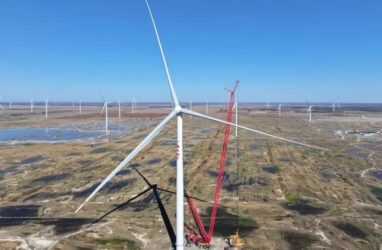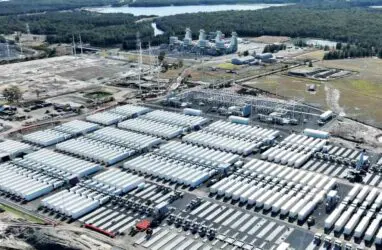Feed aggregator
Construction is the world’s biggest polluter, yet Labour still refuses to tackle it | Simon Jenkins
Refurbishing an old building is subject to full VAT, but it isn’t if you build a polluting new one. The government’s priorities are all wrong
You can damn oil companies, abuse cars, insult nimbys, kill cows, befoul art galleries. But you must never, ever criticise the worst offender of all. The construction industry is sacred to both the left and the right. It may be the world’s greatest polluter, but it is not to be criticised. It is the elephant in the global-heating room.
It’s hard not to feel as though we have a blind spot when it comes to cement, steel and concrete. A year has now passed since the UN’s environment programme stated baldly that “the building and construction sector is by far the largest emitter of greenhouse gases”. The industry accounts for “a staggering 37% of global emissions”, more than any other single source. Yet it rarely gets the same attention as oil or car companies.
Simon Jenkins is a Guardian columnist
Continue reading...Triodos Bank to ringfence €500 mln in nature-based solutions by 2030
G20 endorses broad climate finance, but fails to provide clarity on NCQG
COP29: BRIEFING – UN “on cusp” of first Article 6 carbon credit issuances
Australia reviews carbon offset auditing mechanism
COP29: Norway signs slate of Article 6 agreements through new $740 mln funding facility
Farmers ‘betrayed’ by ministers, says union head before London protest
Proposed inheritance tax changes targeted by body for agricultural industry in England and Wales
The head of the farmers’ union has accused UK ministers of betraying the agricultural industry with changes to inheritance tax before a protest in Westminster.
Tom Bradshaw, the president of the NFU, told Sky News that the environment secretary, Steve Reed, promised a year ago that a future Labour government would not change the relief on inheritance tax for farmers.
Continue reading...Cop29 live: boost to summit as G20 reaffirms transition away from fossil fuels
G20 communique in Rio contains key lines on climate confirming world set to transition away from fossil fuels
In keeping with previous Cop summits in authoritarian countries, authorities in Azerbaijan appear to have made some limited allowances for civil society interventions during the conference.
Here are some pictures of the activism taking place so far on Tuesday at Cop29.
Brazil has shown leadership during its G20 presidency and this signal could pave the way for unlocking a transformative finance deal at COP29, one that should mobilize at least a trillion dollars per year for climate action. This will be a drop in the ocean compared to what governments are already paying and people are already suffering around the world due to climate catastrophes. However, this funding must come in the form of grants and public money, not private finance. Private finance in its very nature is about making profits, before meeting genuine human needs.
While the joint declaration produced by the G20 on Monday shows some early positive signals–addressing key issues such as the ongoing wars in Gaza and Ukraine, a global alliance against hunger and poverty, and discussions on a wealth tax–it remains too broad and lacks specifics. The urgency of the climate crisis demands stronger and more immediate action.
We expect G20 leaders to take the lead on advancing NDCs and mobilising climate finance to send a strong signal to the negotiations taking place here in Baku. Without concrete actions to back these commitments, the gap between ambition and reality will continue to grow, leaving millions of people increasingly vulnerable.
Continue reading...Australia mistakenly included on list of countries joining US-UK civil nuclear deal, British government says
Albanese government denies media reports it is signing up to collaboration to share advanced nuclear technology
- Follow our Australia news live blog for latest updates
- Get our breaking news email, free app or daily news podcast
The UK government has conceded that Australia was mistakenly included on a list of countries that were expected to sign up to a US-UK civil nuclear deal.
The Albanese government flatly denied media reports on Tuesday that it would join the UK and the US in a collaboration to share advanced nuclear technology. The UK and the US announcement said they would speed up work on “cutting-edge nuclear technology”, including small modular reactors, after inking a deal at the Cop29 UN climate summit in the Azerbaijani capital of Baku.
Sign up for Guardian Australia’s breaking news email
Continue reading...COP29: Roundup for Day 9 – Nov. 19
COP29: Singapore, Zambia sign Article 6 MoU
Australian oil major sets 2040 carbon storage target
‘It is feasible’: climate finance won’t burden rich countries, say economists
Experts say mix of taxes with development bank and private funding can provide $1tn a year needed by 2030
Raising money needed to tackle the climate crisis need not be a burden on overstretched government budgets, leading economists have said.
The sums needed – approximately $1tn a year by 2030 – are achievable without disruption to the global economy, and would help to generate greener economic growth for the future.
Continue reading...UK’s intensive farming hotspots have 79 times more chickens than people, data shows
Despite large poultry units being a key driver of river pollution, their number has soared near the Wye and Severn
More than 51 million chickens are being industrially farmed in the river valleys of the Severn and Wye – the equivalent of 79 chickens for every person in the region, according to new figures.
The exponential rise in large intensive poultry units (IPUs) in the valleys is a key driver of river pollution. Chicken dropping contains more phosphates – which starve fish and river plants of oxygen – than any other animal manure.
Continue reading...Could keeping native species as pets save them from extinction? Here’s why it’s not that simple
World’s largest onshore wind turbine powers up for first time
The post World’s largest onshore wind turbine powers up for first time appeared first on RenewEconomy.
Cop29 negotiations aren’t moving fast enough. The Pacific is running out of time | Surangel Whipps Jr
Small island states must continue to be protected by special circumstances and need access to sufficient climate-based finance, Palau’s president writes
A week into Cop29 negotiations, we’re not moving fast enough – or anywhere for that matter – on some key issues.
Climate finance, or more specifically the new collective quantified goal (NCQG) to replace the current $100bn a year goal, and the work to operationalise the loss and damage fund, are key expected outcomes here in Baku.
Continue reading...EnergyCo seeks new CEO after James Hay decides on shift to government
The post EnergyCo seeks new CEO after James Hay decides on shift to government appeared first on RenewEconomy.
Queensland government joins cornerstone investors in backing of major climate tech fund
The post Queensland government joins cornerstone investors in backing of major climate tech fund appeared first on RenewEconomy.
Big batteries and EVs to the rescue again as faults with new nuclear plant cause chaos on Nordic grids
The post Big batteries and EVs to the rescue again as faults with new nuclear plant cause chaos on Nordic grids appeared first on RenewEconomy.







